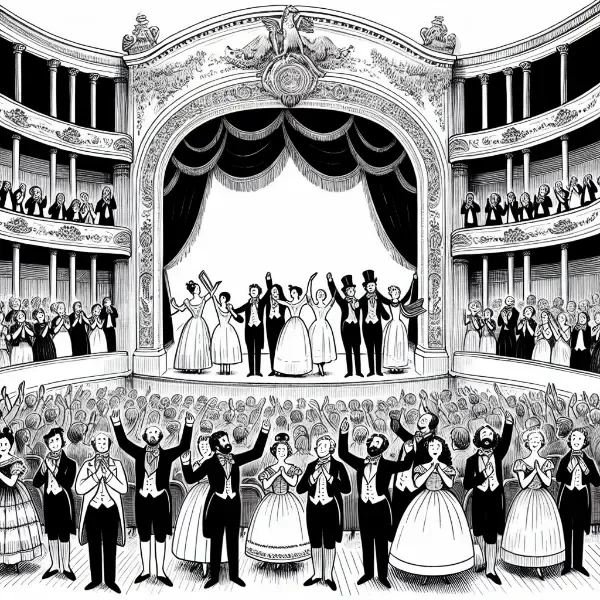Claquers

Dear Rea,
Have you ever wondered why we do certain things? Is it because we truly want to, or because everyone around us is doing it? Today, I’d like to share a story about a profession that once existed, which played on this very human tendency to fit in. It’s called a “claquer” (pronounced “clack-er”).
Humans are social animals, and a big part of our behavior is driven by the desire to be accepted by our peers. This instinct likely stems from our ancient past when staying with the tribe meant safety and survival. Back then, your tribe was all you knew, and fitting in was crucial.
Now, think about your weekly community meeting at school on Friday mornings. After a speaker finishes, the audience cheers and claps. Have you noticed how the energy of others affects your own applause? People tend to clap harder or longer when those around them do, creating a ripple effect of enthusiasm. This mirroring of energy is an example of our social nature at work.
In the 19th century, particularly in Paris opera houses, theater managers would hire a special group of people called a “claque” to cheer for the show. These individual claquers would blend in with the audience and, at carefully chosen moments, clap, applaud, laugh, or even cry during the performance. Their job was to guide the audience’s reaction and create a more enthusiastic atmosphere. Claquers often had specific roles: the “rieur” (laugher) would chuckle loudly at jokes, the “pleureur” (crier) would sob during emotional scenes, and the “bisseur” (encore-demander) would shout for repeat performances.
However, it eventually took a dark turn. Some claques began blackmailing performers, threatening to boo and hiss during shows unless they were paid. This behavior contributed to the practice’s eventual decline.
While we can’t get jobs as claquers today, the psychology behind their work still exists in our social interactions. Next time you’re at your community meeting, pay attention to your own reactions. Are you clapping because you genuinely enjoyed the presentation, or are you keeping up with your neighbors? It’s an interesting exercise in self-awareness and understanding the subtle social cues that influence our behavior.
What do you think about this, Rea? Can you imagine how a modern-day claque might operate in our digital age? Perhaps influencers on social media are the new claquers of our time! Love, Abba

